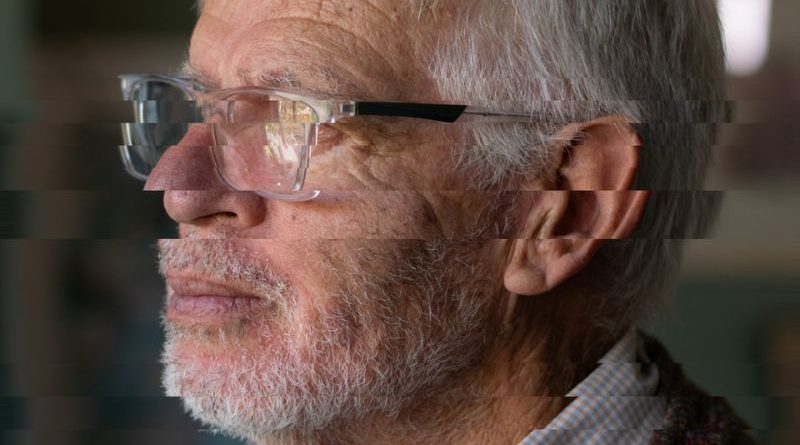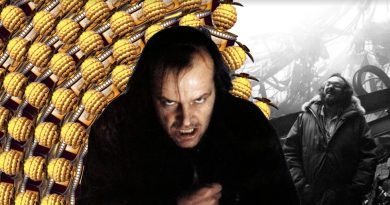Journey from Film Critic to Filmmaker
Having been a film critic for closing in on two decades, you’d think you couldn’t teach an old dog new tricks. Turns out, you can. For this movie critic, who once thought he’d be writing reviews forever, the journey went from reviewing film to writing it. When some filmmakers realised it’d be good to get a review when there’s still a chance to effect changes, they commandeered the services of Stephen Aspeling better known as Spling. Called upon to give notes on a film at the first edit stage, this professional undertaking turned into the basis for boutique script consultancy, reviewmyscript.com.
Watching so many films every week gives movie critics a unique vantage point, a luxury not often afforded to filmmakers who are often consumed by whatever they’re working on. Getting this valuable outsider’s perspective with a level of industry oversight can offer fresh insights with useful suggestions that can improve the overall product. Filmmaking is a team sport, which means that feedback should be given at every stage of the production process. While this tends to mostly happen internally, it can prove to be especially valuable for an external assessment when the project becomes overly familiar to the people working on it. Having offered professional script services through reviewmyscript.com for 5 years with the help of Matthew Kalil and Angelique Pretorius, this movie critic turned script editor decided to go one step further and write something.
Being a script editor connects you with filmmakers and screenwriters who are usually at various stages of the filmmaking process, which leads to further collaboration. After providing notes for a short film script, an opportunity to work as a co-writer and creative producer came along. Ultimately looking at co-writing a feature film script, the first project was to be a short about an old man and his faithful dog – a project which became Good Boy.
When you assist filmmakers and screenwriters with their work, you get a chance to have creative influence. This can be rewarding, being able to see your fingerprints on a finished product, giving one a sense of fulfillment in knowing you helped enhance a project. While satisfying, it still doesn’t amount to creative control where you feel like you have a degree of authorship and a screenwriting credit. So, it’s one thing to edit a script and another to write one.
Good Boy provided this opportunity, being able to work on a short film that’s now out there [YouTube]. A modest production, it serves as a lived case study where someone who’s always largely been an outsider and end-user gets a chance to create. Teaming up with actress and filmmaker, Charlenè Brouwer, just made sense. Charlenè has a wealth of experience in front of and behind camera, making her a great ally and mentor in the filmmaking game. She brought 20 years of industry experience as an actor, producer and director, wanting to craft and execute more narrative-driven projects, now under the banner of Best Case Scenario Media.
The writing process can be daunting but when you’ve got a clear vision and good team dynamic, it becomes so much easier. Writing a script is just the beginning, having to shoot and eventually edit the film in processes that have a direct bearing on the story and eventual product. It’s a fascinating process where your original vision can and often does change, forcing you as the so-called author to be amendable to input and teamwork. As a co-writer you already need to be willing to compromise or figure out how each script’s dynamic works. As the idea originator, much of the emphasis lies with what you had in mind but you must be open to criticism and changing course, able to acknowledge ideas and suggestions.
The sparsely scripted Good Boy was self-funded and co-produced by Brouwer Productions, Spling Movies and Into the Light Films with special thanks to Brightburn Studios. As a co-writer, the next task was serving as a producer, partially funding the film and doing whatever it takes to get the job done on the day. This involved everything from cleaning floors, catering, handyman fixes, recording sound, chipping into the creative decision-making and ferrying cast. Getting a full range of on-set experience, the deep-end learning is both humbling and invaluable. Able to watch Charlenè Brouwer as director, Kobus Louw as DOP and Theo Scheepers as editor, it’s easier to appreciate what ends up on screen.
Now with the rise of AI, it seems more important than ever to gain a degree of versatility, especially when you’re pigeon-holed into one specialty. The Good Boy short film was the impetus needed to gather enough confidence to write a radio play psychological drama thriller called Close to Home, which is now being produced by SAfm. The next step is to produce a proof of concept short film for Close to Home, develop the feature film script and hopefully shoot this with the likes of Charlenè Brouwer and Bekker-Brand Janse van Rensburg. Having co-written several feature and short film scripts, which are in development, it’s exciting to see what the future holds for Stephen “Spling” Aspeling – a film critic in the process of becoming a filmmaker.




